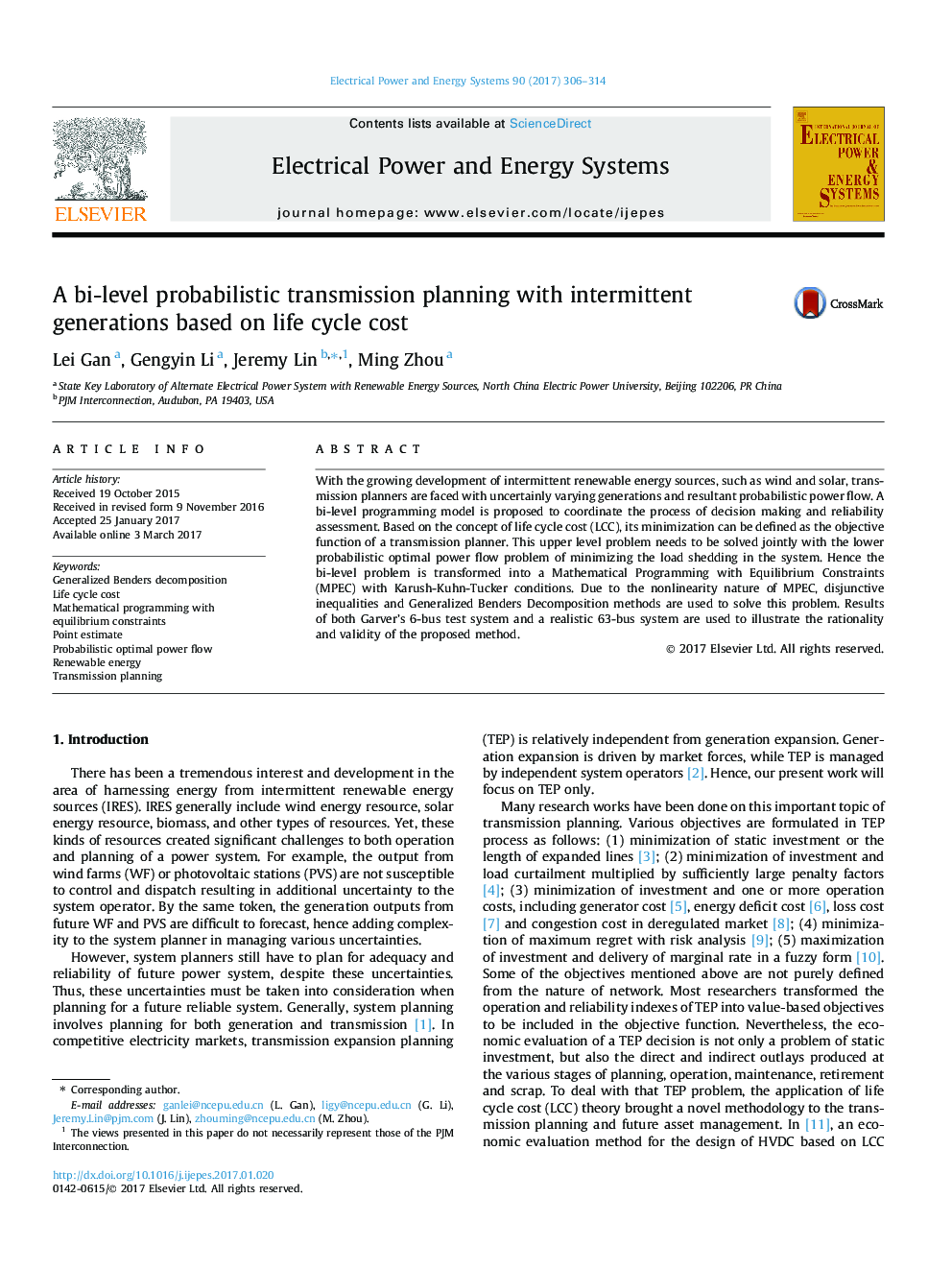| کد مقاله | کد نشریه | سال انتشار | مقاله انگلیسی | نسخه تمام متن |
|---|---|---|---|---|
| 4945637 | 1438710 | 2017 | 9 صفحه PDF | دانلود رایگان |
- A bi-level TEP method considering probabilistic OPF aims to minimize LCC of TEP.
- Three point estimate method applied to deal with the operational uncertainties.
- Bi-level TEP model reformulated as a MPEC by using KKT and solved in a joint manner.
- Alternative linearization to reduce binary variables improves solving efficiency.
With the growing development of intermittent renewable energy sources, such as wind and solar, transmission planners are faced with uncertainly varying generations and resultant probabilistic power flow. A bi-level programming model is proposed to coordinate the process of decision making and reliability assessment. Based on the concept of life cycle cost (LCC), its minimization can be defined as the objective function of a transmission planner. This upper level problem needs to be solved jointly with the lower probabilistic optimal power flow problem of minimizing the load shedding in the system. Hence the bi-level problem is transformed into a Mathematical Programming with Equilibrium Constraints (MPEC) with Karush-Kuhn-Tucker conditions. Due to the nonlinearity nature of MPEC, disjunctive inequalities and Generalized Benders Decomposition methods are used to solve this problem. Results of both Garver's 6-bus test system and a realistic 63-bus system are used to illustrate the rationality and validity of the proposed method.
Journal: International Journal of Electrical Power & Energy Systems - Volume 90, September 2017, Pages 306-314
